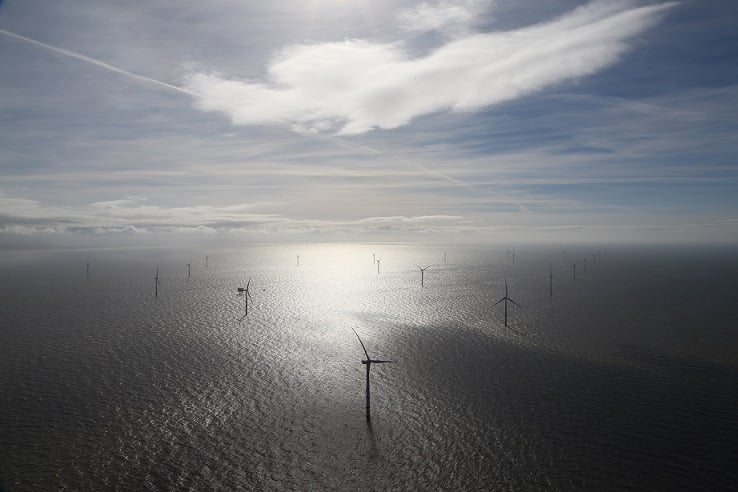Consumers will have to foot a bill of around £1.5 billion over a 15 year period as a result of government changes to the Contracts for Difference mechanism which resulted in higher strike prices in the September 2017 auction.
Despite offshore wind securing record breaking strike prices in the auction, the National Audit Office has found that rule changes made by the Department for Business, Energy and Industrial Strategy (BEIS) for contracts to support new, low-carbon electricity generation will increase costs for energy users by around £100 million a year.
In September 2017 BEIS awarded 11 CfDs, including to two offshore wind projects – Hornsea 2 and Moray Offshore – which secured a record strike price of £57.50/MWh. The contracts fix the price that generators receive for their electricity for a set period, with energy users paying a top-up if the market price falls below this amount.
In order to head off concerns around over-procurement, BEIS in April 2015 changed the rules on how a capacity cap would apply in future auctions. This change meant smaller, more expensive projects could be awarded contracts ahead of projects generating more electricity but at a cheaper price per unit.
A generation cap of 150MW was applied to projects using “fuelled technologies” that could be awarded in September’s auction, meaning the new rule would be applied.
Following the auction, Labour MP Dame Margaret Hodge raised concerns with the NAO after being approached by a project developer that had bid unsuccessfully as it would have been able to provide more generating capacity than was permitted under the rules of the auction. However, it had bid at a lower unit price than some competing projects that won contracts.
The NAO says this situation occurred because of the changes made to the auction design before the 2017 auction. These changes meant that some projects that were too large to fit within the capacity cap did not win contracts, while some projects that were smaller but more expensive per unit of electricity did.
The decision not to award a contract to the project raised by Hodge was therefore in line with the rules the Department had set for the auction.
The NAO has therefore concluded that BEIS’ decisions around the CfD will cost energy users around £1.5 billion extra over the contracts’ 15-year life, for only a small amount of additional capacity, compared with what would have happened if the Department had not changed the rules on how a capacity cap would apply.
Despite the performance of offshore wind in securing new lows in cost, it was also found that the projects could have reached even lower strike prices were it not for the smaller, fuelled-technology projects – biomass with combined heat and power, and advanced conversion technology (ACT) – raising the strike price of larger projects.
The NAO says BEIS said it made the design change on the expectation `that wind projects would bid at a higher price than fuelled-technology projects, meaning the small fuelled-technologies may have been able to reduce additional costs.
However, no evidence has been provided from when it made the changes to the auction design to show that it assessed the potential risk of bid prices for offshore wind projects being different from this expectation.
“The Department recognises that this means the outcome of the auction was suboptimal and has stated it will not apply the capacity cap rule in the same form in future auctions,” the NAO report states.
Neglecting the interests of service users
However, the news that government decisions led to higher than necessary costs to energy users has been pilloried across government.
Meg Hillier MP, chair of the committee of Public Accounts: “The rules BEIS set for the auction of Contracts for Difference has cost the consumer an extra £1.5 billion, and only a small amount of the extra money will be used to generate additional energy capacity.
“Once again the Department has neglected to put the interests of service users at the forefront of its thinking.”
The NAO’s judgement is the latest in a series of damaging headlines for the government and the BEIS department specifically.
The Environmental Audit Committee (EAC) has issued a damning verdict of the government’s approach to clean energy investment in recent years, claiming government decisions taken from 2015 onwards have significantly dented investor confidence in clean energy, resulting in a collapse in total investment – down in cash terms by 10% in 2016 and a further 56% in 2017.
In addition, the Commons Select Committee has today stated that like the government’s failed Green Deal initiative, scrapped in 2015, the Renewable Heat Incentive has failed to meet its objectives or provide value for money for the £23 billion expected total cost to taxpayers.





